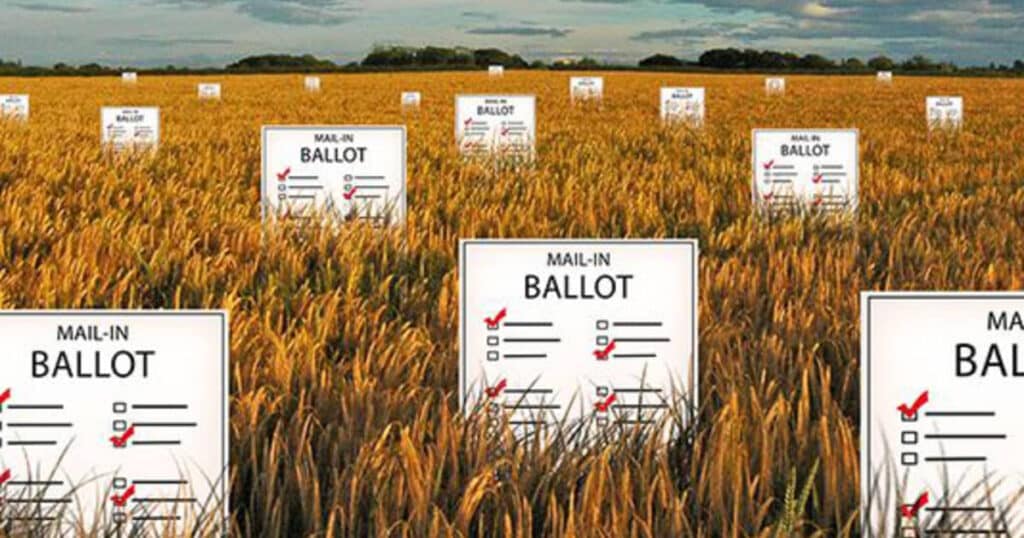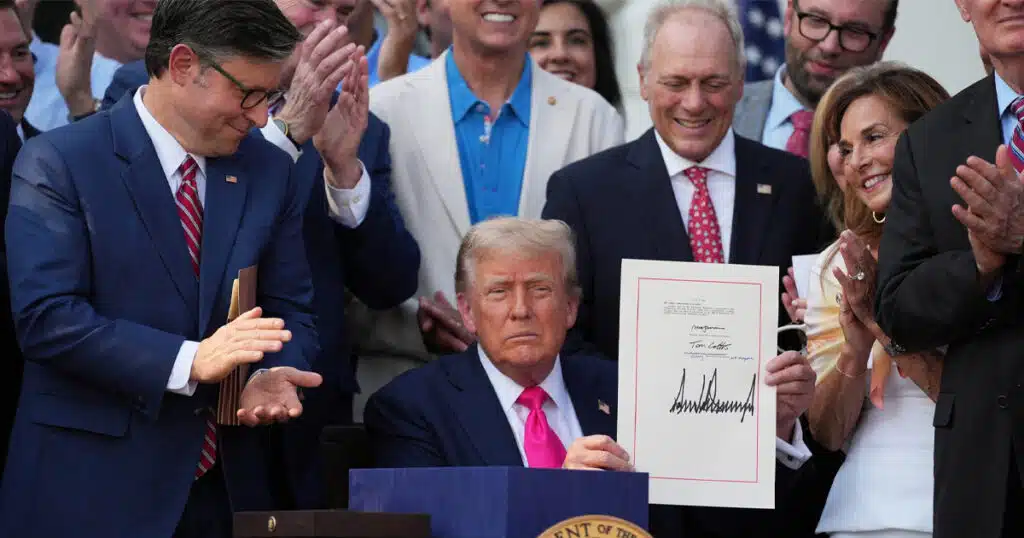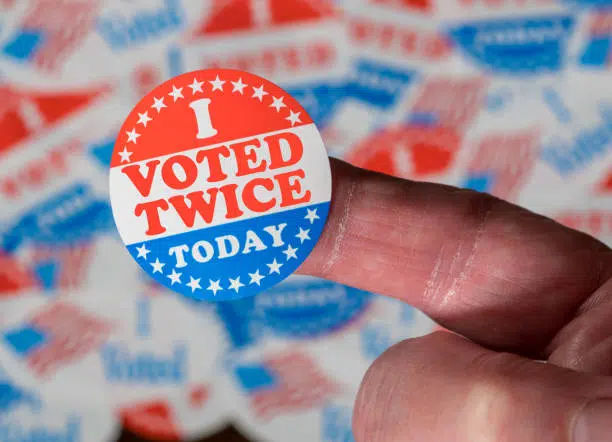
Freshman Republican Assemblyman Introduces Bill to Clean Up California Elections
It’s known by many in California as “ballot harvesting,” the relatively unlimited ballot collection practice that allows virtually anyone to collect mail-absentee and mail-in ballots from other voters — regardless whether they live with the people who signed the ballots — to ostensibly submit them to be counted during an election period.
State Assemblymember Bill Essayli, who won election last November in his largely rural district in the Riverside County area of California’s Inland Empire, is one of a vocal contingent of Republicans and other like-minded constituents who assert the current ballot collection system can be easily, fraudulently manipulated — as he believes happened during his first run for the state legislature back in 2018, when he lost to Democrat Assemblymember Sabrina Cervantes.
Essayli wants California to revert back to more traditional election practices — and to that end has introduced legislation that would, among other things, eliminate the controversial “ballot harvesting” process, as well as the relatively new requirement that all registered voters in the state receive mail-in ballots, whether they request them or not.
There have been a notable number of local and statewide elections over the years when Republican candidates seemed to amass formidable vote counts during the start of their respective Election Days, only to see their leads slip away in the hours and often days it’s taken for elections officials to complete their race counts, as collections of uncounted ballots mysteriously appear at tallying locations. Critics believe ballot harvesting has provided an improved and easier way to stuff ballot boxes — and that the new mail-in as opened
Essayli says the state’s decision in 2020 to deliver mail-in ballots to every voter and then extend the deadlines mailed ballots need to be received by officials to several days after the actual Election Day, has multiplied the chances for election fraud, despite the findings of several studies that have concluded the Golden State’s ballot collecting approach has in fact not led to widespread fraud.
Data from an investigation by the Associated Press showed fewer than 475 cases of voter fraud out of 25.5 million votes cast in six battleground states in the 2020 presidential election. Then, this last November. the AP reported state-level law enforcement units investigating voter fraud in the midterm elections found no evidence of systemic problems.
Nonetheless, Essayli wants California to revert back to more traditional election practices that focus on the voting booth instead of the mailbox.
Assembly Bill 13, which Essayli says he introduced on the Assembly floor as his “first official act” since being elected, would overhaul state elections and speed up vote counts.
The bill would also designate Election Day a state holiday.
“These reforms will strengthen the integrity of our elections while ensuring the will of the voters is timely and accurately represented,” Essayli said in a news release sent out in early December, noting the amount of time it was taking to count votes in two mid-term legislative races with razor-thin margins.
According to an AB 13 fact sheet issued from Essayli’s office, the public’s trust in government and concerns over election fraud “have been an ever-growing issue across the nation.”
The document continues that “Recent changes to the state’s laws regarding how votes are collected and counted have only exacerbated the problem…They have also prolonged the torturous process of waiting for final election results, in some cases to over a month.”
Essayli’s chief of staff, Shawn Lewis, offered assurances that AB 13 would allow anyone to request a permanent vote-by-mail ballot. But, to speed up vote counts, AB 13 would shorten the deadline for county registrars to receive mail-in ballots from seven days to three days after Election Day.
The legislation would also do away with voting centers that open before Election Day and can be used by any registered voter to cast a ballot or change their voter registration.
Under AB 13, only family members or someone living in the same household would be able to return a filled-out mail-in ballot that doesn’t belong to them. The bill also would prohibit counties from conducting all-mail-in elections.
Essayli’s legislation stands little chance of passing the California legislature, observers say, which for decades has been solidly controlled by Democrats — the same lawmakers who approved California’s current elections laws in the name of making voting easier.
“Democrats strongly support mail-in voting,” Jack Pitney, a professor of politics at Claremont McKenna College, told the California Globe via email. “Indeed, expect them to use this bill as an example of the voter-suppression tactics that Republicans would use if they ever returned to power in California.”
Marcia Godwin, a professor of public administration at the University of La Verne, also told the Globe via email that AB 13 is being presented “as a serious effort to amend election laws rather than a more symbolic bill to protest vote-by-mail and ballot harvesting provisions in current state law.” But, “the bill contains enough poison pills that echo Trumpian talking points that it is unlikely to be taken seriously without further amendments.”
On the other hand, Godwin suggested, the Election Day holiday part of AB 13 “could get serious attention.”
But, she said, “it may be more viable as a standalone bill and with bipartisan cosponsors.”



